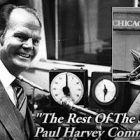Years ago, I hosted a radio show where I had the opportunity to interview medical providers from many specialties about their work with patients. One of the recurring themes was that “Patients lie.”
Now – you might wonder why that would become a theme, but the answer is quite simple. It was important to discuss it during the show because smart patients need to know that their providers assume they are lying as a part of the diagnoses or treatment they provide. (Good advice for smart advocates, too.)
Here are some examples:
- An anesthesiologist told me that patients are always asked how much alcohol they drink. Whatever answer the patient gives, is then (at least) doubled when it comes time for the anesthesiologist to determine how much anesthesia to administer during surgery. (An honest patient may not receive enough anesthesia based on that “doubling.”)
- Endocrinologists ask their diabetes patients whether they are watching their carb intake. The patient may say “yes,” but when the provider sees an A1C value that is too high, they just assume the patient has lied instead of seeking another cause for that too-high A1C. (That’s problematic if there truly is another cause.)
- Many primary doctors and nurse practitioners told me that when they ask a patient if she smokes, and she says no, they may not believe her if she has a history of smoking. (An honest, smart patient needs to be aware that untrue judgment is being made.)
So what does all that have to do with patient advocates?
With few exceptions, most advocates are big-hearted people-lovers who want to lend assistance to patients who we know aren’t getting what they need from the healthcare system. We are generous and focused on finding the solutions patient-clients need in the areas of care and the cost of care.
We are sympathetic. We are empathetic. We just want to help.
So, when we enter into a relationship with new clients, as we get to know more about them and their situations, about their needs, their insurance coverage, even their ability to pay us for the work we do, we are honest and truthful with them as we describe how we can help them.
What we rarely seem to consider is that maybe – just maybe – they aren’t being as honest with us as we are being with them. Unlike medical providers, we aren’t taught to distrust and make adjustments. That can get us into trouble.
Here are a few real-life examples of blind trust that created problems for advocates:
Case #1: An advocate contracted with a patient who was told by a collection company that she would be sued for the $133,000 she owed for infusions she had received. The client wanted to get the amount corrected and reduced, claiming she had not gotten so much treatment. When all the facts were in, it turns out that there were holes in the patient’s story. Further, the patient had told the infusion company that her “lawyer” (she was actually referring to her advocate) had told her not to pay any of the money owed. It was a major mess, made worse by all the promises the patient made to pay the advocate for her work, bills that ultimately went unpaid.
Case #2: An advocate contracted with a woman who needed help for her mother handling Medicare and payments. The daughter paid for some time upfront (as she should) but then began making demands of the advocate that could not be handled by the advocate. It turned out that the Medicare and payment requests weren’t what she really wanted help for at all. The advocate ultimately found herself in an untenable position with the daughter, so she severed the contract and returned the money paid by the daughter. Unfortunately the daughter continues to harass the advocate about the work that advocate could not do, and never claimed to be able to do. The daughter also claims she never received the money back.
Case #3: An advocate was asked by a patient to reduce her hospital bills, to review them for errors, then help her negotiate with the hospital. The advocate spent many hours reviewing the bills and did find some errors. But when she connected with the hospital billing department, she learned they had already written off $80 thousand for the patient, and were unwilling to write off any more.
These three real-life examples all come from the cost of care side of advocacy, but we can also guess at some of the areas on the care side of our work where potential clients might not be entirely truthful:
Example #1: A patient fails to mention the several doctors she has seen to try to get prescription pain meds prescribed.
Example #2: An adult child estranged from his parent requests information about Mom’s care as if he is interested in her well-being, when he may only be interested in how soon he’s going to inherit what she leaves behind.
Example #3: A patient lies about getting verbal approval for a certain treatment, is then treated by his doctor, and then expects you, the advocate, to figure out how he can get the claim approved later.
You might even have your own examples of clients who have shaded the truth – or told lies outright – about their circumstances or expectations.
These stories and examples raise this question: to what extent do we need to assess the honesty of potential clients? Medical providers learn during their training not to always trust their patients. Should that be part of our training, too?
While not foolproof, there are some steps you can take to protect yourself from untruthful, even deceitful clients. Consider the following:
- If a potential client’s story sounds too awful to be true, don’t assume it is. Any story needs to be reviewed for its veracity as much as possible BEFORE you agree to accept an advocacy assignment or sign a contract.
- Build a clause into your contract that allows you to back out of a client work process if you find the client has not been honest with you. This doesn’t mean that if the client tells you a small fib that you are obligated to stop working for him. But it does give you a backdoor if you need one. Be sure the clause spells out how the money will be handled (all money paid will be kept by the advocate, or an extra amount of $500 will be charged for the insult… )
- Early in the conversation, just as you reiterate that you will not be providing medical services, you can also emphasize the need to be honest with each other.
- While there aren’t too many of these stories just yet, you can check in on the APHA website to find out if any clients have been reported for non-payment or for being dishonest in their work with an advocate. (Premium members can login > Client Services > How to Research a New Client)
- Finally, remember that sometimes we deal with patient-clients or their family members who have mental health issues that may mean they have trouble discerning the real truth from their own perception. If you suspect this could be a problem, you can choose early on whether you want to work with that client or step away.
I can’t imagine spending hours and hours working with a client to meet her needs and goals only to find out I had been duped – no matter whether that was intentional or not. I do know I would not want to have to clean up the mess afterward.

The biggest lesson here is, just like medical providers are taught to do, be sure to leave your naivete at the door when it comes to engaging with a client. Better to turn one away early than to pay the price through harassment, finding yourself later in small claims court, or weathering a lawsuit.
LEARN ABOUT APHA MEMBERSHIP | FIND MORE REASONS PATIENTS NEED ADVOCATES

This week we spotlight Nancy Ruffner, from
Navigate NC in Raleigh, North Carolina
Learn more about Nancy in her AdvoConnection Spotlight





